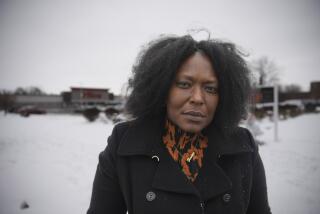It’s the Mundane Stuff That Kills
- Share via
With 9/11 images etched in their memories and some transatlantic flights canceled, travelers have terrorists on their minds. “I’m going Greyhound rather than fly to California,” my Baltimore cousin explains. “Al Qaeda’s not so likely to target a bus.” Others, also fearing the worst, elect to drive rather than fly.
But the fears are often out of sync with the facts. The National Safety Council reports that in the last half of the 1990s, Americans were, mile for mile, 37 times more likely to die in a vehicle crash than on a commercial flight. In a late-2001 essay for the American Psychological Society, I calculated that if -- because of 9/11 -- we flew 20% less and instead drove half those unflown miles, about 800 more people would die in traffic accidents in the next year. In an upcoming issue of the journal Psychological Science, German psychologist Gerd Gigerenzer finds that the last three months of 2001 indeed produced 350 more U.S. traffic fatalities than the average for those months in the previous five years.
Why do we intuitively fear the wrong things? Why do smokers, fret about flying? Why do we fear violent crime more than clogged arteries? Why do we fear terrorism more than accidents, which kill nearly as many in a week in just the U.S. as did worldwide terrorism in all of the 1990s? Even with the horrific scale of 9/11, more Americans in 2001 died of food poisoning than terrorism.
Psychological science has identified four influences on how we gauge risk.
First, we fear what our ancestral history has prepared us to fear, which includes confinement and heights, and therefore flying.
Second, we fear what we cannot control. Driving we control, flying we do not. “We are loath to let others do unto us what we happily do to ourselves,” notes risk analyst Chauncey Starr.
Third, we fear what is immediate. Teenagers are indifferent to the toxicity of smoking because they live more for the present than the future. Likewise, the dangers of driving are diffused across many moments to come.
Fourth, we fear what is most readily available in memory. Images of United Flight 175 slicing into the World Trade Center form indelible memories. In contrast, thousands of safe car trips have largely extinguished our anxieties about driving. A thousand anthrax victims would similarly rivet our attention more than another 30,000 annual gun deaths. If a surface-to-air missile brings down a U.S. commercial airliner, the result would be devastating for the aviation industry. Probabilities won’t matter; the human mind has trouble grasping the infinitesimal odds of it being a plane you will be on. Images will rule.
We fear too little those threats that will claim lives undramatically, one by one rather than in bunches. Smoking kills 400,000 Americans a year, yet we subsidize tobacco growers. Although killing many fewer, terrorists kill in ways that cause more terror.
And as George Orwell’s “1984” long ago recognized, it serves those in power to keep our attention focused on perceived external threats. Many a social psychology experiment confirms the principle: A perceived external enemy serves to quell dissent and unify a group.
Consequently, we will spend tens of billions to save future thousands, yet we are reluctant to spend a few billion to save millions. Ten billion dollars a year would spare 29 million world citizens from developing AIDS by 2010, according to a joint report by representatives of the United Nations and others.
It is perfectly normal to fear purposeful violence from those who hate us. When terrorists strike again, we will all recoil in horror. But smart thinkers will also want to check their intuitive fears against the facts and to resist those who serve their own purposes by cultivating a culture of fear. Otherwise, if our fears cause us to live and spend in ways that divert our attention from tomorrow’s biggest dangers, then we surely do have something to fear from fear itself.


